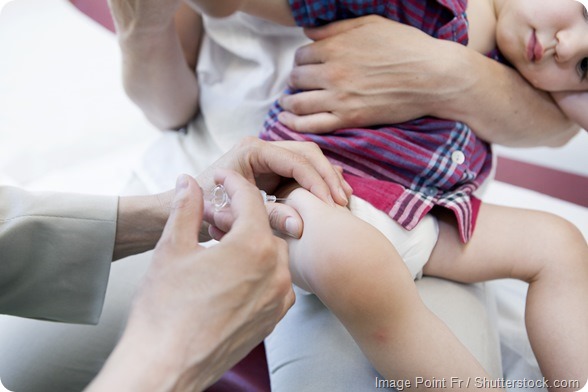The recently published National Immunization Survey (NIS) conducted by the CDC, shows that the majority of infants in the US were vaccinated against potentially serious diseases in 2013. Fewer than 1% of children were unvaccinated in 2013.
Since 1994, the NIS has collected national, state, and selected local area vaccination annual coverage rates for children 19-35 months old. It is sponsored by the National Center for Immunizations and Respiratory Diseases (NCIRD).

In 2013, vaccination against measles, mumps, and rubella (MMR), poliovirus, hepatitis B and varicella remained stable above 90%. Slight increases from 2012 were observed for uptake of rotavirus and hepatitis A.
Dr Anne Schuchat, director of the NCIRD, commended healthcare professionals and parents on this achievement and concluded:
These people are central in keeping young children healthy by ensuring they receive the recommended vaccines on schedule.
Despite overall immunization rates being high, children are still not receiving all the doses recommended for full immunization programs. Three vaccines require a booster dose at age 2 years: diphtheria, tetanus, and pertussis (DTaP), Haemophilus influenzae type b (Hib), and Pneumococcal disease (PCV).
The proportion of children who were fully vaccinated against 11 diseases ranged from 82% in Rhode Island to 57% in Arkansas. All vaccination rates were lower amongst children living in poverty, despite the provision of free vaccinations through the Vaccines for Children program.
Nationally, 92% of children aged 19-35 months had received at least one MMR dose. However, 17 states had <90% coverage with the MMR vaccine. Furthermore, 1 in 12 children did not receive their first dose of MMR vaccine on time, leaving a significant proportion of children susceptible to preventable diseases. In 2014, there have already been 592 measles cases preliminarily reported in the United States, the highest number of any year since 1994.
The CDC strongly recommends that all children be vaccinated according to the recommended schedule.
Resources